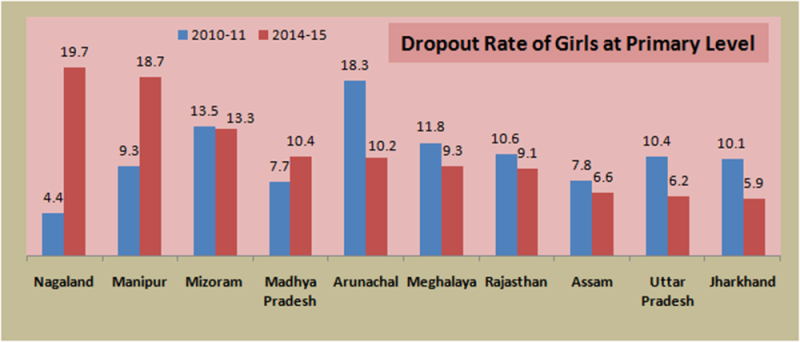Missing school was not an option, let alone dropping out of it. Such are the privileges in my part of the world that are in stark contrast with the other part of the same country. For some, going to school is an indulgence one cannot have at the onset of menstruation, free labor on the family farm, taking care of younger siblings, early marriage so on and so forth. The Hindu newspaper quoted Mr. Krishna Kumar, former director, National Council of Educational Research and Training (NCERT), “There is no such thing as a national picture when it comes to school dropouts. If you create a national picture by mathematical aggregation, that picture is meaningless since regional variations are far too big.” Although Mr. Kumar is accurate in his opinion, there is a Pan-India pattern in school drop-outs where girls drop-out at a higher rate as compared to boys. A certain section of the society has been vocal that educated girls are opinionated and that intimidates people who are only used to men in that role. Society is wont of deciding boundaries for women which sometimes arises out of insecurity that patriarchy inflicts upon men. For some people, if women do what men have been doing then what will men do? Before equity, security and shared responsibility must be internalized.


Victor Hugo has famously said, “Society is culpable in not providing a free education for all and it must answer for the night it produces.” Under the Sarva Shiksha Abhiyan, we do have free primary education for all children in the country. However, paucity of good teachers and aforementioned socio-cultural phenomena create barriers. People living in rural areas are agrarians. They are indoctrinated to tangible cause and effect. The proverb, “As you sow, so shall you reap” is literal for them (barring the global warming ramifications). Education brings in long-term benefits that are latent in the duration of apprenticeship. For agrarians, the benefits of formal education are too far ahead into the future and subject to many other circumstantial changes. One cannot be wealthy only by the virtue of being educated. One has to make opportunistic decisions and act upon them. This fact deters people to be emotionally convinced about the benefits of education. This dimension contributes to school drop-outs where girls are the casualty of the attrition. As Mr. Partha Pratim Rudra of Smile Foundation rightly pointed out to The Hindu, “Ensuring social inclusiveness, especially with regard to girls and Scheduled Caste/Scheduled Tribe children, sensitizing teachers, and convincing parents of first generation students of the value of education always makes a big difference.”




